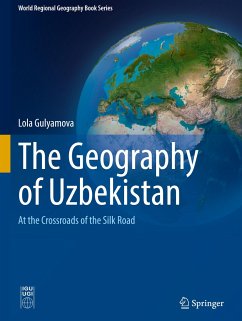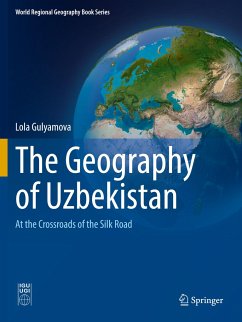
Culture and Archaeology of the Ancestral Unangax¿/Aleut of the Aleutian Islands, Alaska
Unangam Tanangin ilan Unangax¿/Aliguutax¿ Maqax¿singin ama Kadaangim Tanangin Anag¿ix¿taqangis
Illustration: Luttrell, Mark

PAYBACK Punkte
19 °P sammeln!
For the past 9,000 years, people lived and flourished along the 1,000-mile Aleutian archipelago reaching from the American continent nearly to Asia. The Aleutian chain and surrounding waters supported 40,000 or more people before the Russians arrived. Despite the antiquity of continuous human occupation, the size of the area, and the fascinating and complex social organization, the region has received scant notice from the public. This volume provides a thorough review describing the varied cultures of the ancestral Unangax , using archaeological reports, articles, and unpublished data; docume...
For the past 9,000 years, people lived and flourished along the 1,000-mile Aleutian archipelago reaching from the American continent nearly to Asia. The Aleutian chain and surrounding waters supported 40,000 or more people before the Russians arrived. Despite the antiquity of continuous human occupation, the size of the area, and the fascinating and complex social organization, the region has received scant notice from the public. This volume provides a thorough review describing the varied cultures of the ancestral Unangax , using archaeological reports, articles, and unpublished data; documented Unangax oral histories, and ethnohistories from early European and American visitors, assessed through the authors' multi-decade experience working in the Aleutian Archipelago.
Unangam Tanangin ilan Unangax /Aliguutax Maqax singin ama Kadaangim Tanangin Anag ix taqangis (Culture and Archaeology of the Ancestral Unangax /Aleut of the Aleutian Islands, Alaska) begins with a description of the physical and biological world (The Physical Environment and The Living Environment) of which the Unangax are part, followed by a description of the archaeological research in the region (The People). The rest of the book addresses ancestral Unangax life including settlement on the land, and the characteristics of sites based on the activities that took place there (People on the Landscape). From this broad perspective, the view narrows to the people making a living through hunting, fishing, and collecting food along the shore-line, making their intricate tools, storing and cooking food, and sewing and weaving (Making a Living); household life including house construction, households, and the work done within the home (Life at Home); and the personal changes an individual goes through from the time they are born through death, including spiritual transitions and ceremonies (Transitions), and the evidence for these events in the material record. This bookis written in gratitude to the Unangax and Aleut people for the opportunity to work in Unangam Tanangin or the Aleutian Islands, and to learn about your culture. We hope you find this book useful. The purpose of this book is to introduce the broader public to the cultures of this North Pacific archipelago in a single source, while simultaneously providing researchers a comprehensive synthesis of archaeology in the region.
Unangam Tanangin ilan Unangax /Aliguutax Maqax singin ama Kadaangim Tanangin Anag ix taqangis (Culture and Archaeology of the Ancestral Unangax /Aleut of the Aleutian Islands, Alaska) begins with a description of the physical and biological world (The Physical Environment and The Living Environment) of which the Unangax are part, followed by a description of the archaeological research in the region (The People). The rest of the book addresses ancestral Unangax life including settlement on the land, and the characteristics of sites based on the activities that took place there (People on the Landscape). From this broad perspective, the view narrows to the people making a living through hunting, fishing, and collecting food along the shore-line, making their intricate tools, storing and cooking food, and sewing and weaving (Making a Living); household life including house construction, households, and the work done within the home (Life at Home); and the personal changes an individual goes through from the time they are born through death, including spiritual transitions and ceremonies (Transitions), and the evidence for these events in the material record. This bookis written in gratitude to the Unangax and Aleut people for the opportunity to work in Unangam Tanangin or the Aleutian Islands, and to learn about your culture. We hope you find this book useful. The purpose of this book is to introduce the broader public to the cultures of this North Pacific archipelago in a single source, while simultaneously providing researchers a comprehensive synthesis of archaeology in the region.












